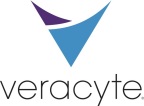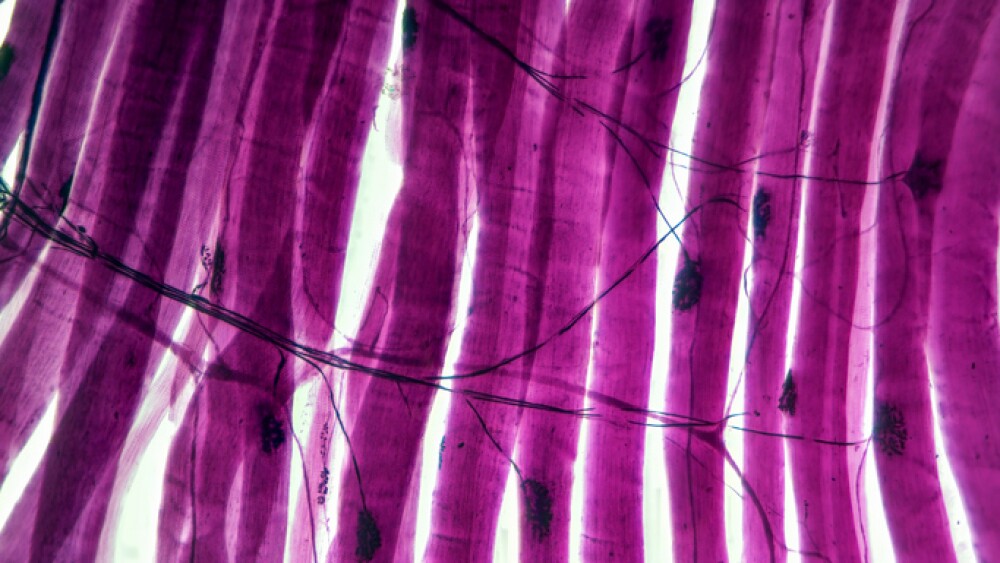Findings Presented at 89th Annual Meeting of the American Thyroid Association
Findings Presented at 89th Annual Meeting of the American Thyroid Association
SOUTH SAN FRANCISCO, Calif.--(BUSINESS WIRE)-- Veracyte, Inc. (Nasdaq: VCYT) today announced new data that advance understanding of the frequency, positive predictive value and co-occurrence of genomic alterations that are targeted by newly available and investigational precision medicine therapies for thyroid cancer. The findings were enabled by Afirma® Xpression Atlas analyses, which uses RNA sequencing, of Veracyte’s extensive biorepository of thyroid nodule fine needle aspiration (FNA) samples from patients undergoing evaluation for thyroid cancer. The data were presented this week during the 89th Annual Meeting of the American Thyroid Association (ATA).
In one study, researchers assessed the frequency of ALK, BRAF, NTRK and RET fusions in nearly 48,000 consecutive patients whose thyroid nodule FNA samples were deemed indeterminate, suspicious for malignancy or malignant (Bethesda III/IV, V and VI categories, respectively) by cytopathology. The researchers found that 425 (0.89 percent) of the FNA samples harbored one of the alterations, with NTRK fusions the most common at 0.38 percent, followed by RET (0.32 percent), BRAF (0.13 percent) and ALK (0.06 percent). Additionally, RNA whole transcriptome sequencing demonstrated differences in the prevalence of these four fusions across Bethesda categories, with Bethesda V being the highest.
“NTRK fusion inhibitors have received pan-cancer FDA approval and clinical trials have included selective inhibitors of ALK, BRAF, NTRK and RET, which makes their detection in patients with thyroid cancer of interest to physicians,” said Mimi I. Hu, M.D., professor at The University of Texas MD Anderson Cancer Center, who presented the findings in a poster. “As our understanding of the role of genomics in thyroid cancer advances, this information offers the potential to optimize initial treatment, predict response to treatment and prioritize selective targeted therapy should systemic treatment be needed.”
In another study, researchers evaluated the positive predictive value of the NTRK, RET, BRAF and ALK fusions in 58 patients with indeterminate thyroid nodules (Bethesda III/IV categories) from Veracyte’s biorepository for whom surgical pathology diagnoses were available. They found that NTRK and RET fusions were associated with malignancy in 28 of 30 nodules, while risk of malignancy was lower among nodules with ALK (67 percent) or BRAF (75 percent). In a third study, researchers found that when using RNA sequencing data on a large sample of nearly 48,000 thyroid nodule FNA samples (Bethesda categories III-VI), they identified 263 co-occurrences of gene fusions and variants that were previously considered “mutually exclusive.”
“The findings from these three studies underscore the power of our extensive biorepository of thyroid nodule FNA samples and our optimized RNA sequencing platform to advance understanding of the genomic underpinnings of thyroid cancer and to better capture the biology of thyroid lesions,” said Richard T. Kloos, M.D., senior medical director, endocrinology, at Veracyte. “As precision medicine therapies that target specific gene alterations emerge, understanding individual patients’ genomic profiles becomes increasingly important to physicians. Our Afirma Xpression Atlas provides this information at the same time as initial diagnosis with the Afirma Genomic Sequencing Classifier, or GSC, to help inform treatment decisions.”
Also during the ATA meeting, Veracyte unveiled its new Afirma patient report, which in addition to identifying patients with benign or suspicious-for-cancer nodules among those deemed indeterminate by cytopathology, based on Afirma GSC results, now provides individualized and actionable variant and fusion information on each patient. This information includes: risk of malignancy, associated neoplasm type, relative risk of lymph node metastasis and extrathyroidal extension; availability of FDA-approved therapy; and genetic counseling and germline testing considerations. This information is also provided for patients with cytopathology results that are suspicious for malignancy or malignant (Bethesda V and VI).
About Afirma
The Afirma Genomic Sequencing Classifier (GSC) and Xpression Atlas provide physicians with a comprehensive solution for a complex landscape in thyroid nodule diagnosis. The Afirma GSC was developed with RNA whole-transcriptome sequencing and machine learning and helps identify patients with benign thyroid nodules among those with indeterminate cytopathology results in order to help patients avoid unnecessary diagnostic thyroid surgery. The Afirma Xpression Atlas provides physicians with genomic alteration content from the same fine needle aspiration samples that are used in Afirma GSC testing and may help physicians decide with greater confidence on the surgical or therapeutic pathway for their patients. The Afirma Xpression Atlas includes 761 DNA variants and 130 RNA fusion partners in over 500 genes that are associated with thyroid cancer.
About Veracyte
Veracyte (Nasdaq: VCYT) is a leading genomic diagnostics company that improves patient care by providing answers to clinical questions that inform diagnosis and treatment decisions without the need for costly, risky surgeries that are often unnecessary. The company's products uniquely combine RNA whole-transcriptome sequencing and machine learning to deliver results that give patients and physicians a clear path forward. Since its founding in 2008, Veracyte has commercialized seven genomic tests and is transforming the diagnosis of thyroid cancer, lung cancer and idiopathic pulmonary fibrosis. Veracyte is based in South San Francisco, California. For more information, please visit www.veracyte.com and follow the company on Twitter (@veracyte).
Cautionary Note Regarding Forward-Looking Statements
This press release contains "forward-looking statements" within the meaning of the Private Securities Litigation Reform Act of 1995. Forward-looking statements can be identified by words such as: "anticipate," "intend," "plan," "expect," "believe," "should," "may," "will" and similar references to future periods. Examples of forward-looking statements include, among others, the ability of Veracyte’s Afirma Xpression Atlas to analyze FNA samples to help diagnose thyroid cancer, the expected impacts of Veracyte’s collaboration with Johnson & Johnson in developing interventions for lung cancer, on Veracyte’s financial and operating results, on the timing of the commercialization of the Percepta classifier, and on the size of Veracyte’s addressable market. Forward-looking statements are neither historical facts nor assurances of future performance, but are based only on our current beliefs, expectations and assumptions. These statements involve risks and uncertainties, which could cause actual results to differ materially from our predictions, and include, but are not limited to: our ability to achieve milestones under the collaboration agreement with Johnson & Johnson; our ability to achieve and maintain Medicare coverage for our tests; the benefits of our tests and the applicability of clinical results to actual outcomes; the laws and regulations applicable to our business, including potential regulation by the Food and Drug Administration or other regulatory bodies; our ability to successfully achieve and maintain adoption of and reimbursement for our products; the amount by which use of our products are able to reduce invasive procedures and misdiagnosis, and reduce healthcare costs; the occurrence and outcomes of clinical studies; and other risks set forth in our filings with the Securities and Exchange Commission, including the risks set forth in our quarterly report on Form 10-Q for the quarter ended September 30, 2019. These forward-looking statements speak only as of the date hereof and Veracyte specifically disclaims any obligation to update these forward-looking statements or reasons why actual results might differ, whether as a result of new information, future events or otherwise, except as required by law.
Veracyte, Afirma, Percepta, Envisia and the Veracyte logo are trademarks of Veracyte, Inc.
View source version on businesswire.com: https://www.businesswire.com/news/home/20191102005007/en/
Contacts
Investors:
Keith Kennedy
Chief Operating Officer and Chief Financial Officer
keith@veracyte.com
650-243-6357
Media:
Tracy Morris
tracy.morris@veracyte.com
650-380-4413
Source: Veracyte, Inc.
View this news release online at:
http://www.businesswire.com/news/home/20191102005007/en






